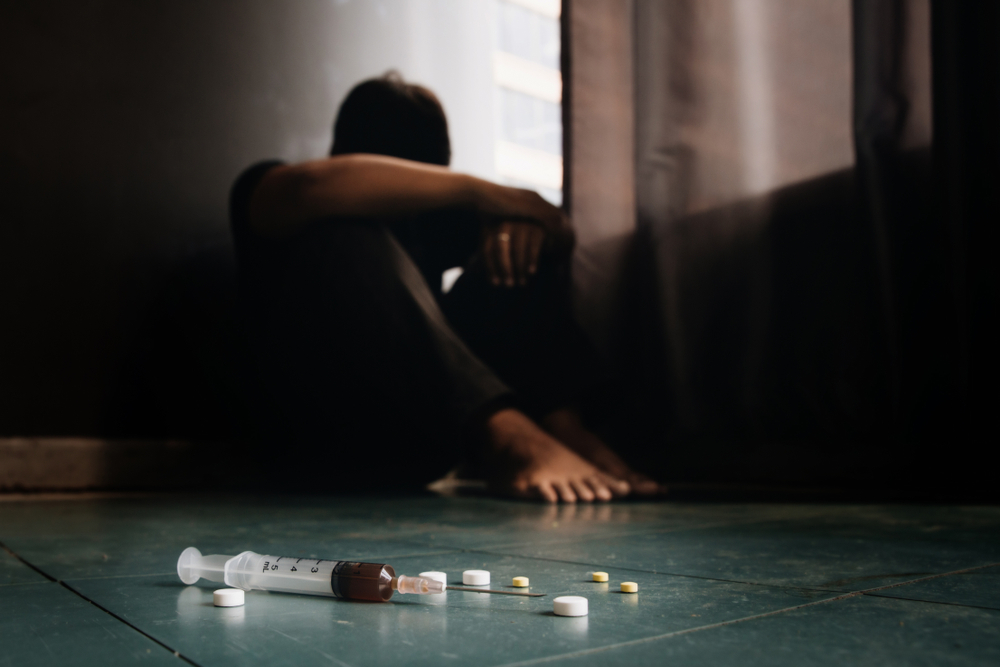 In a 2023 report, 8.33% of teenagers aged between 12 and 17 nationwide admitted to using illicit drugs. The use of drugs among adolescents seems to be on the rise in the US which has many parents concerned.
Teenage substance use disorder can cause family dynamics to fall apart, especially if parents don't know how to confront the situation. If you've found drugs in your teenager's room it's important not to react emotionally because it could lead your child to take more drugs or run away from home.
To assist you, we've provided important information as to why there's a surge in teen drug use in the US as this will help you understand your child's situation. There are also confrontation tips to follow if you've found your teenager in the possession of drugs.
In a 2023 report, 8.33% of teenagers aged between 12 and 17 nationwide admitted to using illicit drugs. The use of drugs among adolescents seems to be on the rise in the US which has many parents concerned.
Teenage substance use disorder can cause family dynamics to fall apart, especially if parents don't know how to confront the situation. If you've found drugs in your teenager's room it's important not to react emotionally because it could lead your child to take more drugs or run away from home.
To assist you, we've provided important information as to why there's a surge in teen drug use in the US as this will help you understand your child's situation. There are also confrontation tips to follow if you've found your teenager in the possession of drugs.
Why is There a Surge in Teenage Drug Use?
In some situations, teenagers may decide to take drugs as an experiment. As a result, they may like the feeling it gives them and can quickly become addicted. Experts also suggest that teenagers take drugs to relieve boredom. However, in other situations, teenagers who have mental health problems may have a higher risk of becoming addicted to drugs. Areas where there are gangs and increased crime rates have a higher risk of teenage drug use. Teenagers who experience depression may also take illegal drugs to feel good and to relieve stress and anxiety.What Can Be Done About Teenagers Who Use Drugs?
One of the ways you can mitigate teenage drug use is to become a role model to your child. If you take drugs, they're more likely to take part in substance abuse. Another way you can stop teenagers from taking illegal substances is to teach your child the dangers of taking drugs. Pay attention to your teen and always have honest conversations with them about their mental health and stress levels. You can prevent your teenager from taking drugs if you're always present and ensuring they're well-educated. Share information with them from the National Institute on Drug Abuse to lower the risk of them being curious about experimenting with illegal drugs.Can Teenage Drug Use Be Improved Before It Gets Worse?
Early intervention can stop your teenager's drug use from becoming an addiction. Make sure they know the exact dangers of drug use such as overdoses, being exposed to diseases, and the potential for organ damage and cognitive impairment. If your teenager has been taking drugs for quite some time, you may need to send them to a residential treatment center. These facilities monitor teenagers to prevent them from using drugs and to wean them off of substances in a safe environment.The Signs Your Teenager is Taking Drugs
As a parent, you may start to notice that your child is acting out of character. Sometimes behavioral changes can be due to depression or stress so it's important to be sure your child is using drugs before you confront them. Here are the warning signs you need to look out for:- Your child has drug paraphernalia like weed grinders, cocaine spoons, or snuff bullets.
- Changes in physical appearance such as dark rings around the eyes.
- A shift in their social circles.
- An increase in anger and agitation.
- Missing items in the house as teenagers may sell objects to buy drugs.
- Drastic weight gain or weight loss.
- Lying about where they go.
- Prescription pills or alcohol consistently go missing.


Leave a Reply